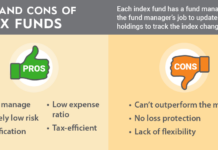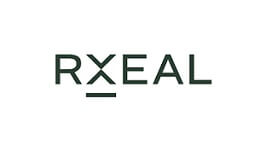For a young person in their 20s, fresh out of university with a new job, what do with extra money is the last thing they are thinking of. Retirement is years away, and plus first jobs rarely pay much. However, thinking about what to do with extra money is actually extremely important.
Early Financial Decisions
Financial decisions made early in life can have consequences that last the longest. This is because of compounding. An investment of $1000 at the age of 25 with a 3% compounding interest rate will be worth over $3300 by the time someone is 65. That same $1000 invested at the age of 35 is only worth $2450 at 65. The difference between the two numbers is significant – and shows that early financial decisions can have an outsize influence on future prosperity.
It is clear that it is important to make investment decisions early on in one’s life. What is not clear is what this money should be invested in. There are many options to think about – bonds, equities, real estate, antiques, art, cryptocurrencies – there are so many possibilities to consider.
Investment Portfolio
There are a few rules about creating a portfolio. The first is that a portfolio should be diversified to reduce risk. An investment for $1000 in a single company’s stock is far riskier than an investment of $1000 spread across 10 companies. This is because a single company has a far greater chance of failure than 10 companies failing at the same time. Some assets are correlated in terms of price – for example during an economic downturn, it is likely the entire stock market will go down and all stock prices will be affected. Conversely, during times of economic hardship, gold tends to go up in price. Portfolio construction looks at the correlation between assets and designs an allocation that minimizes risk and maximizes rewards.
Young And Daring
The second rule is that the younger you are – the riskier the portfolio should be. This is because a young person has a longer period of time to accumulate wealth – and recover from financial problems. Therefore it makes sense for someone nearing retirement to focus more on fixed income assets (which have a low return but little risk) than equities (which can do down quite easily but have greater upside). This means that a young person should explore investing in alternative asset classes beyond equities and fixed income.
Liquidity Vs. Illiquidity
The third rule is around liquidity. While that real estate investment could prove to be extremely lucrative, if money is needed quickly it will take some time to sell the house and see any cash. For equities, money can be acquired within a day. If someone has no intention of touching their savings pot for a while, illiquid assets such as real estate, collectibles, and private equity are worth exploring.
The Formula
With these three rules in mind – what is the best portfolio allocation for a young person? The internet comes up with many different numbers. One common formula is to take the number 100 and subtract your age. For example, a 30-year-old would expect to invest 70% of a portfolio in stocks and 30% in bonds. This percentage would decrease as one ages. However, this formula ignores other asset classes such as real estate and is still (in my view) relatively low risk. Younger investors with higher risk tolerance should look at diversifying this further.
I would propose that 20% of a young investors portfolio could be put into more risky assets. One new asset class that the traditional investment world has largely ignored is digital assets, such as Bitcoin. These are extremely high risk – but for a young person, the risk may be worth it for an exceptional return. Nevertheless, I would suggest that no more than 10% of a portfolio be allocated to something like Bitcoin. The other 10% could be allocated to less liquid assets – for example as a deposit for a mortgage rental property – or in collectibles such as wine. Counterintuitively, putting 20% of a portfolio aside for more risk investment endeavors actually reduces the overall portfolio risk. This is because the price of wine or Bitcoin is not usually correlated to the stock market. With all this mind – young investors need to think carefully about how to invest their money and ensure that they can enjoy a pleasant retirement.












